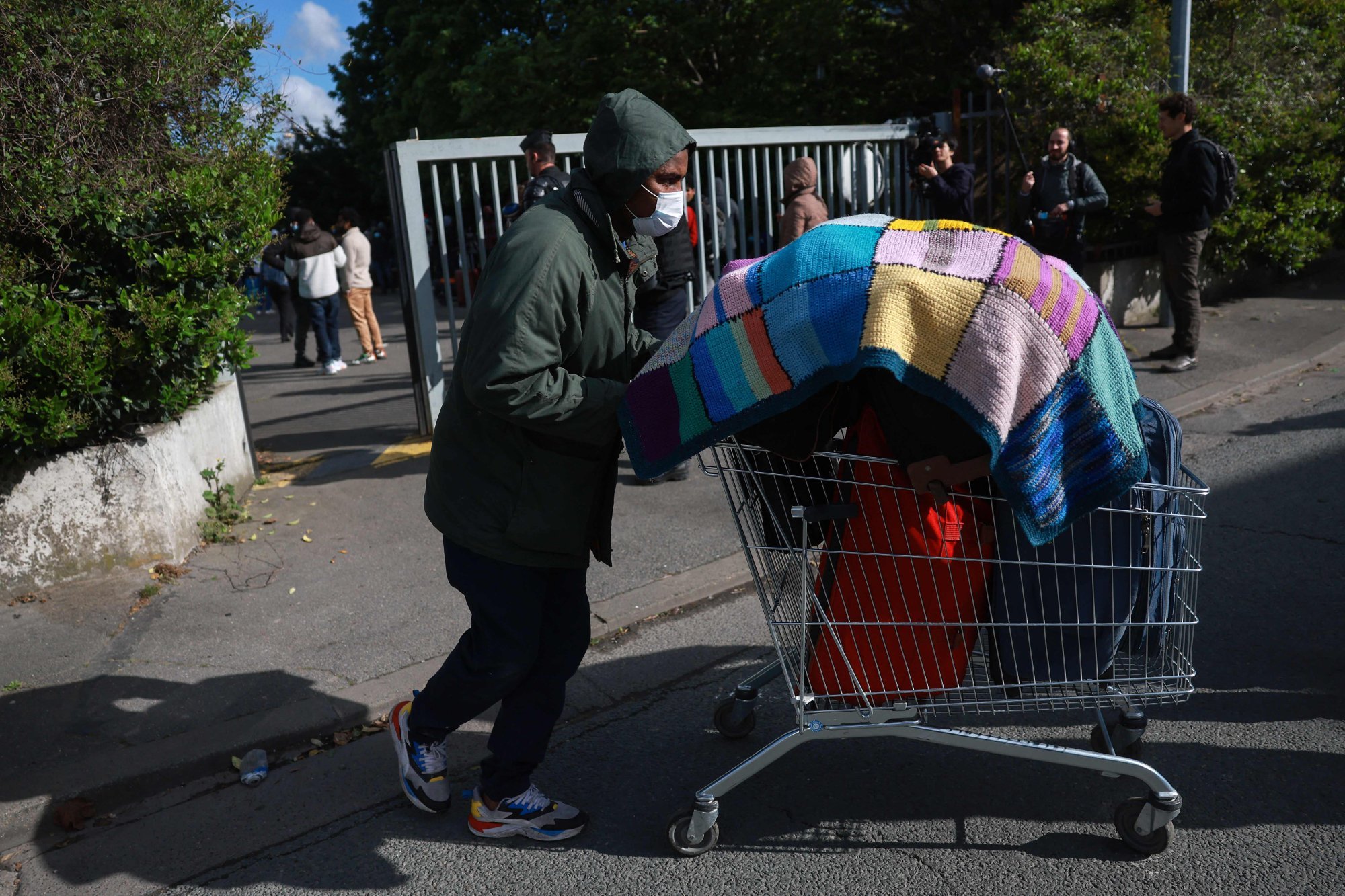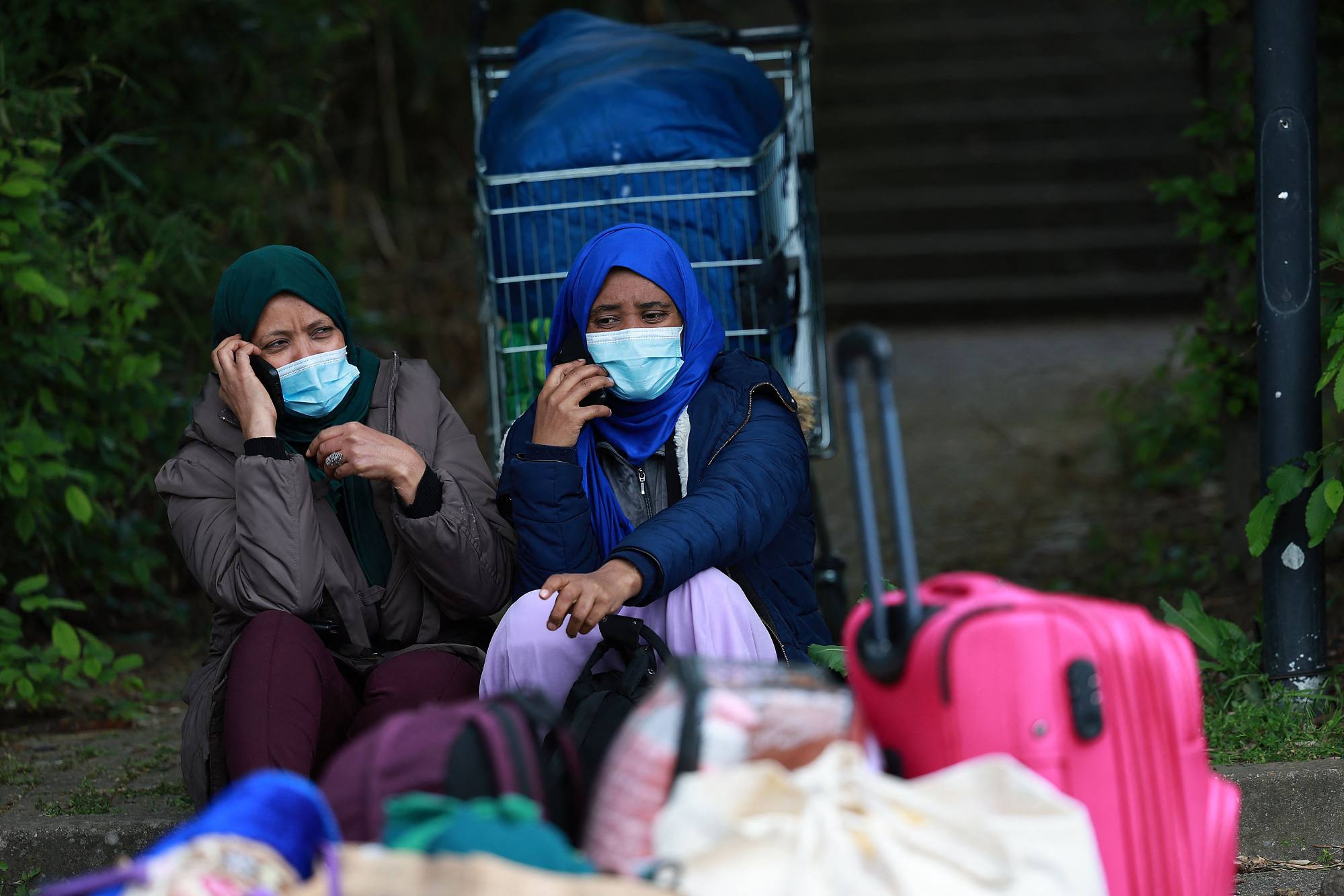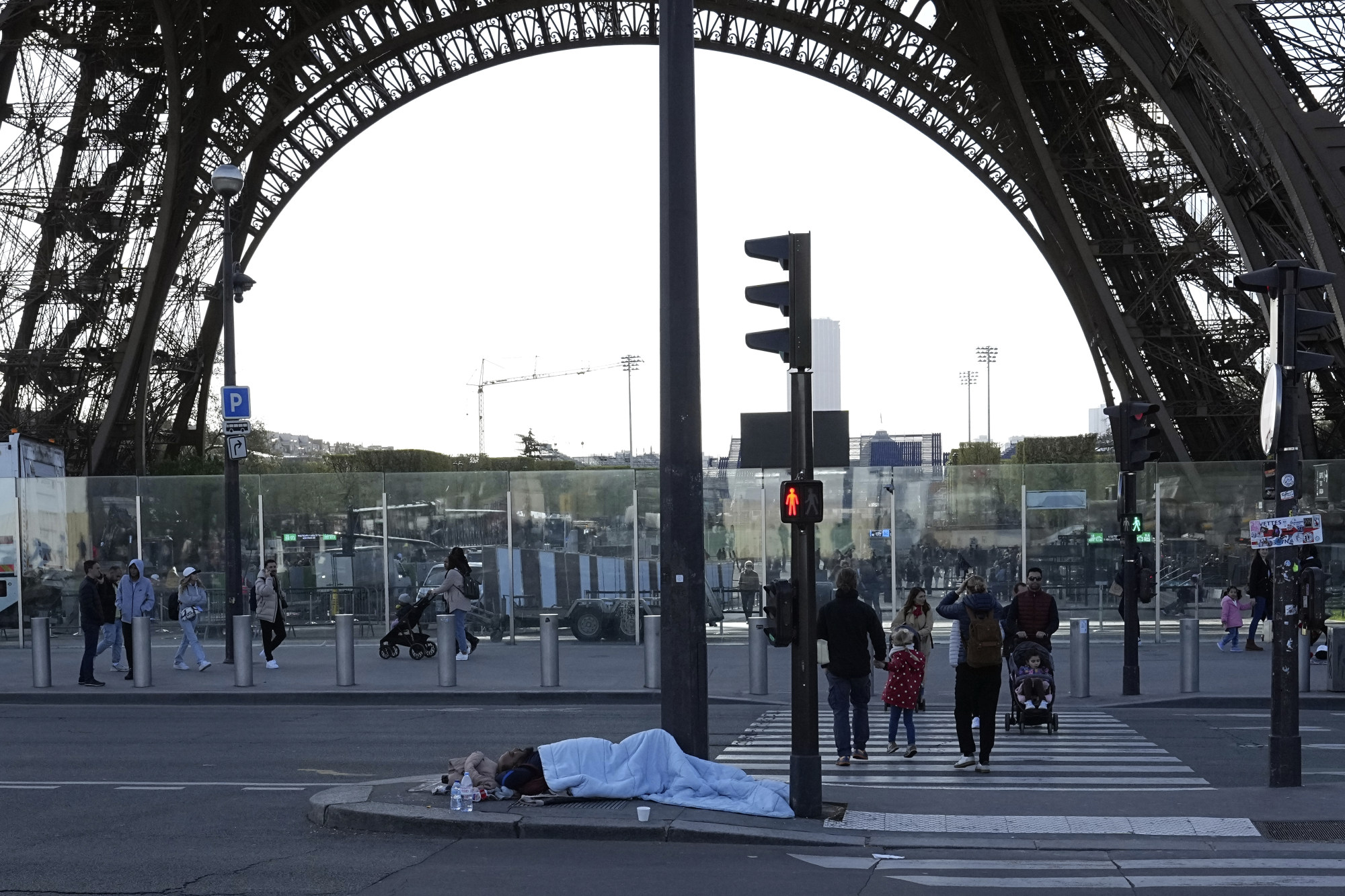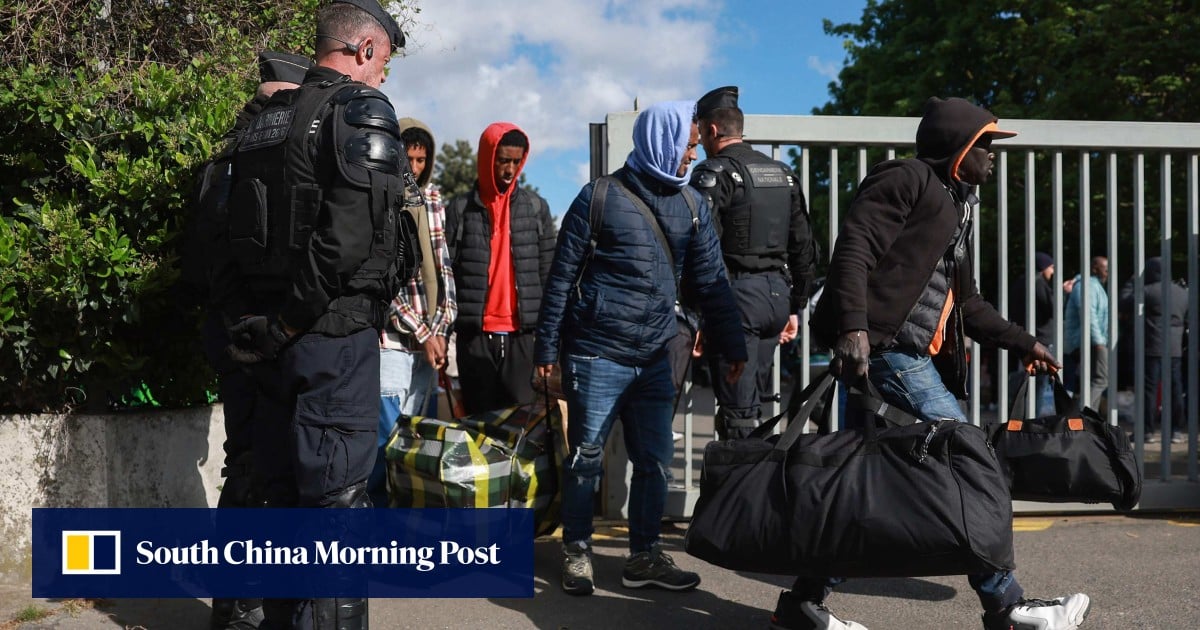“There are spaces in shelters near Paris, but clearly they want to move them away from the capital. Especially before the Olympics,” said Alauzy.
The clearance operation will continue over several days. The site is empty: 150 people left the night before the police arrived, while 300 were evicted before 8am. Wednesday morning. Among the 450 were 20 children and 50 women, the aid group said.
Clutching their belongings in bags, suitcases or trolleys, the roughly 300 people who had remained left calmly on Wednesday morning under the eye of police in riot gear, looking worried about their next step.

Most were young men, but several young mothers with children were also among the crowd.
One by one, holding documents in plastic folders, they approached immigration officials sitting behind tables to explain their situation in broken French or stilted English.
Buses waited outside, ready to take them to the central city of Orleans or the southwestern city of Bordeaux.
But many people said they did not want to leave the Paris region.
“I want to stay here,” said Abakar, a 29-year-old from Sudan who did not give his second name.
He said he was in Paris to follow a logistics course and had been promised a job in a supermarket.

At one table, a woman official tried to convince another young man to try his luck in Bordeaux.
“You know, in France, there isn’t just Paris. Bordeaux is nice, it’s warmer than here,” she said.
But he, too, was attending training in the capital region, and so she directed him to another table where a colleague was in charge of accommodation near Paris.
Merci Daniel, a mother from Sudan, said she had sent her children to stay in a nearby shelter because there was “too much violence” inside the squat.
But she did not want to leave the area, as she was scared she would no longer see them if she did.
An official found her a room at a hotel outside Paris for several days.
Some mayors in rural and small-town France have also become increasingly angry over the transfer of migrants from the capital to their communities.

Umbrella association Revers de la Medaille, french for The Medal’s Other Side, which underscores the harmful effects of the Games on the most precarious populations, said it did “not know where families with school-going children were sent to.”
They have been particularly vocal about the accelerated pace of camp clearances as the Games approach, warning of the dire consequences for those who find themselves without shelter.
The fate of these displaced individuals remains a pressing issue as the city gears up for its time in the global spotlight, highlighting the tension between urban beautification efforts and support for marginalised communities.
Earlier this month, French police removed about 50 migrants, including families with young children, from the forecourt of Paris City Hall. The migrants packed their belongings and boarded a bus to temporary government housing in the town of Besançon in eastern France.

